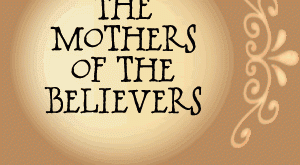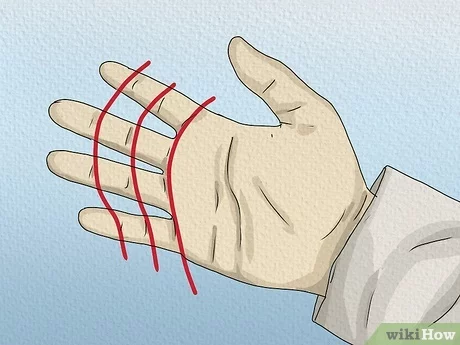"I heard your footsteps in front of me in Paradise."
Slavery is America's original sin. It was there from the beginning. While the civil war eventually abolished it, what remains is an insidious, institutionalized and pervasive racism that has persisted in spite of the triumph of liberalism. Even as women make gains in achieving parity with men and GLBT community makes spectacular advances in both legal and social acceptance, America continuous to have episodes of racial flare-ups — Ferguson, Baltimore and now South Carolina. America's shame is there for the world to see.
But enough about the bad; in this month of Ramadan, I want to focus on something more beautiful. I want to talk about a moment in Muslim history when racism was transcended and its enduring legacy. I want to talk about Bilal (rah), the African companion of Prophet Muhammad (pbuh).
It all began when a slave of Abyssinian origins heard about Prophet Muhammed's message and accepted Islam. His name was Bilal Ibn Rabbah. When Bilal embraced Islam, it was as if Africa had embraced Islam. And when Prophet Muhammed and his companions rescued and freed Bilal, it was as if Islam had adopted Africa. Since that moment in history, Islam and Africa are one. Today, there are over 250 million African Muslims and a significant percentage of American Muslims are African-Americans .
Bilal enjoys a very special place in Islamic history and liturgy. One of the five pillars of Islam is prayer. Muslims are obligated to pray five times a day and many all over the world fulfill this duty. There are millions of mosques on the planet and each one of them has the five daily prayers. Before each prayer, there is a call for prayer called Azaan. The first Azaan was given by Bilal, and the words that Muslims have since used for the call for prayer for centuries are Bilal's. Five times every day, millions of Muslims replay that form of worship, which is the gift of the first black Muslim, who often described himself as someone who "was until yesterday only a slave."
The personality of Bilal captures the American black experience, as I understand it, in a nutshell. His story is a narrative from slavery to freedom, from darkness to faith, from obscurity to historic centrality. Every time Muslims — white, black, brown or whatever — establish a connection with God, they begin by imitating Bilal's vision of how to call people to prayer.
He is a beloved hero of Muslims today and was cherished and respected by Muslims of his time. But it could not have been easy to be a former slave in a society that was extremely sensitive to tribal allegiances and deeply proud of its ethnic/Arab identity and where a class system based on the hierarchy of tribal identity was deeply embedded. The particularism of tribal identity, which clashed with the universalism of Islamic identity, has still not disappeared from Arab society. Indeed, some very prominent Islamic scholars have maintained for centuries, in direct opposition to the sense of the Quran that the leader of the global Islamic community can come only from one Arab tribe called Quraysh.
Nevertheless, Prophet Muhammad (pbuh) found ingenious ways in which to deal with the flaws and characteristics of his people. In one well-recorded moment, he elevated Bilal to such a position of esteem that, to this day, Muslims, in spite of all human inclinations to differentiate on the basis of race and difference, find it easy to respect and accept people from different races and ethnicities within their fold and consider them as moral equals. The social schism of racial superiority that pervaded other societies in East and West has more or less spared Muslim communities from its malice.
One morning, when Prophet Muhammad and his companions had gathered for the dawn prayer, the Prophet of Islam remarked to Bilal, "Last night I heard your footsteps in front of me in heaven." Prophet Muhammad wanted to know what it was Bilal had done that had made God so happy that Bilal had preceded him into heaven. This was indeed a great honor for anyone. Bilal replied that the only thing he did (on his own accord I suppose) was to offer prayers every time he performed ablutions. We now call that prayer Tahiayat al-Wudu.
This public elevation of a black former slave to a status that even prophets would find enviable went a long way in focusing the attention of Muslims on deeds and not on socially constructed notions of nobility and prestige. Actions mattered more than inherited identity. Prophet Muhammad reiterated this in his last sermon, in which he declared that "No one was better than another, black or white, Arab or non-Arab, except by virtue of deeds."
The suffering of black people, centuries of slavery followed by decades of discrimination, is undeniable. It is an ongoing tragedy. I have no doubt in my mind that we will hear black footsteps in heaven long before we enter its gates.
Source : http://www.huffingtonpost.com
Post Disclaimer | Support Us
Support Us
The sailanmuslim.com web site entirely supported by individual donors and well wishers. If you regularly visit this site and wish to show your appreciation, or if you wish to see further development of sailanmuslim.com, please donate us
IMPORTANT : All content hosted on sailanmuslim.com is solely for non-commercial purposes and with the permission of original copyright holders. Any other use of the hosted content, such as for financial gain, requires express approval from the copyright owners.
 Sri lanka Muslims Web Portal Sri Lanka Muslims News Center
Sri lanka Muslims Web Portal Sri Lanka Muslims News Center
 Donate
Donate


